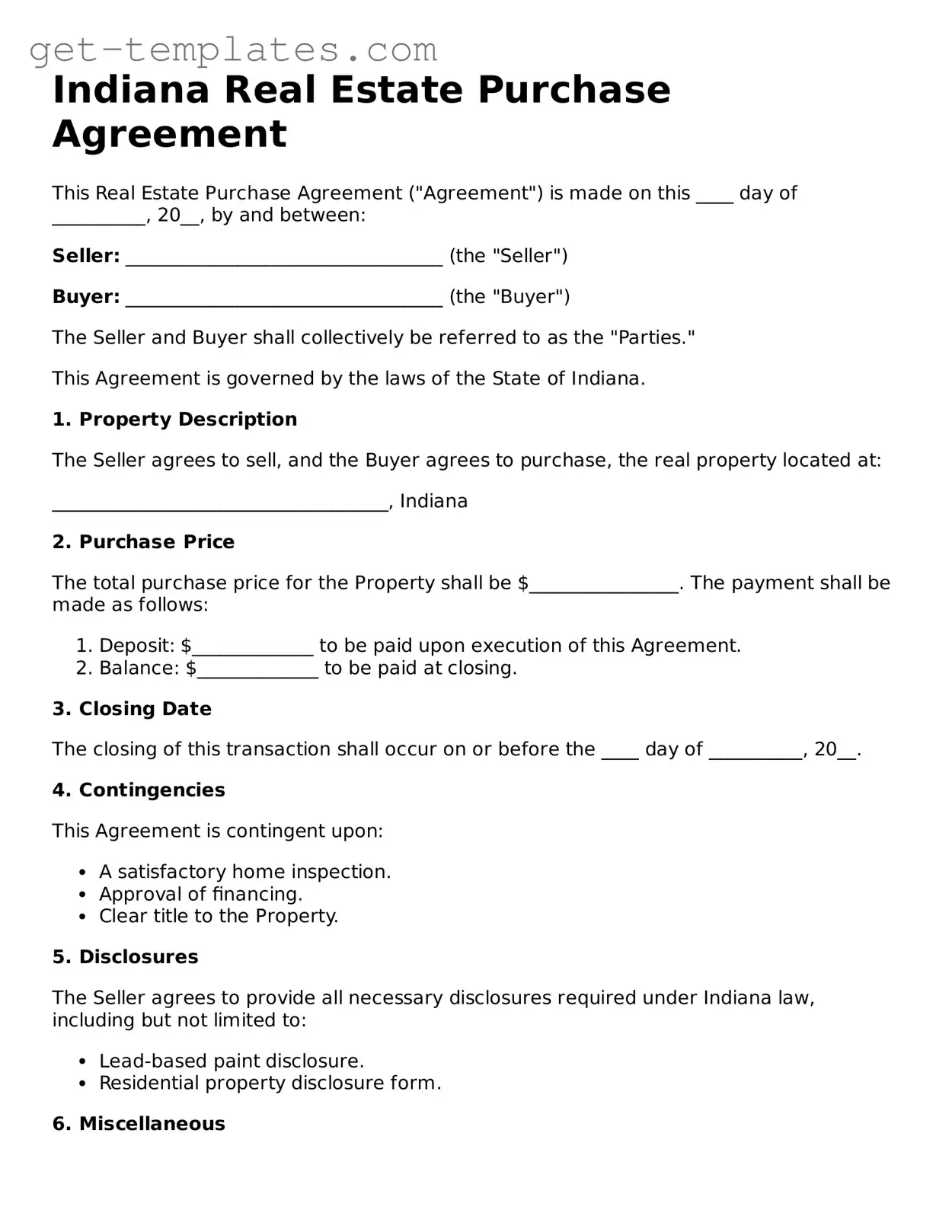Attorney-Approved Real Estate Purchase Agreement Document for Indiana
The Indiana Real Estate Purchase Agreement is a legally binding document that outlines the terms and conditions under which a buyer agrees to purchase a property from a seller. This form serves as a crucial tool in real estate transactions, ensuring that both parties are clear on their obligations and expectations. Understanding its components can help facilitate a smooth transfer of ownership and protect the interests of everyone involved.
Get Document Online

Attorney-Approved Real Estate Purchase Agreement Document for Indiana
Get Document Online
You’re halfway through — finish the form
Finish Real Estate Purchase Agreement online — edit, save, download made easy.
Get Document Online
or
⇓ PDF Form
